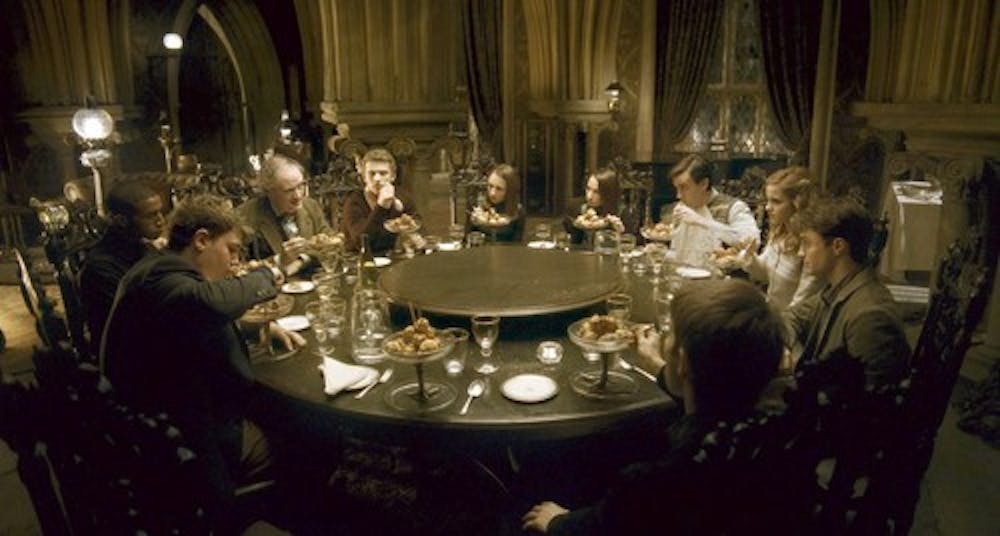They can't all be winners: Terrible film adaptations
Throughout the course of history, many books, video games and comics have been adapted into film franchises. Some have instantaneous and overwhelming success, while others simply don't make the cut in the fans' eyes.
Certainly, no film can ever completely portray all details laid down by a book or comic series, but most make valiant efforts. There are others that completely fall short of the mark.Two of the most often cited examples of such films were "Eragon" and "Inkheart." Both were adapted from a popular fantasy book series, and both left fans of the franchise with a bitter taste in their mouths.
"Some of the main locations and characters of the book were removed entirely, and the characters they actually included were often mis-characterized or too shallow to count," said Monroe freshman Brett Goodman. "They messed it up so badly, that if they had planned to make the sequel a movie, it would have been impossible. Basically, there is a book called 'Eragon' and a movie called 'Eragon,' and the two are not the same."
Many echoed the sentiments that the movie fell far short of expectations, for seemingly no good reason.
"Both 'Eragon' and 'Inkheart' left out huge, and rather important parts of the book," said Jasmine Stefansky, a junior from Dundee. "Both films just seemed like they didn't have enough money to make it right. They had really bad special effects and they did an awful job of bringing the books to life."
When Potter fails us all
Many students had varying opinions about the massively popular Harry Potter franchise, citing a handful of the eight movies as bad examples of film making.
"I remember an interview about the 'Prisoner of Azkaban' (the third Harry Potter film) in which the film makers originally said they were going to make the movie longer, and had the running time to do so, but decided to cut it off, which resulted in them leaving a lot of detail out," Stefansky said.
Several other students were less than thrilled with the sixth film in the Potter franchise, titled "Harry Potter and the Half Blood Prince." Many were frustrated those in charge felt the need to add in extra filler material that altered the plot line of the book, while still leaving out other important information from the story.
"I understand if they have to cut things out so that the movie isn't five hours long, but when they added in useless plot info, like the Burrow (the Weasley family's home in the series) burning down is where I was really upset," said Mary Menter, a Dearborn senior.
Many other poorly adapted movies were mentioned bitterly by fans, including Brandon Craigie, a sophomore from Fowlerville.
"I really disliked the movie version of 'Avatar: the Last Airbender,'" Craigie said. "It was just a really, really bad adaptation of the TV series. Eighty percent of the names in the movie were pronounced incorrectly, and the main character's personality was completely changed from a fun-loving little boy to this super serious, mature kid. A ton of important details were completely omitted as well."
Devon Warriner, a Marshall sophomore, said she was disappointed with the movie, "Lemony Snicket's A Series of Unfortunate Events," especially their decision to combine the first three of the 13-book series into one movie, an idea that maybe seemed good at the time, but did not go over well in fruition.
"They had so much potential for that movie, but by combining the first few books in such a weird way, they ruined it and no one wanted to see any more," she said. "I guess I think that the plot they created in combining the first few books into one movie didn't really make sense, and I was never a fan of the casting. I never saw Jim Carrey as Count Olaf."
Detroit freshman Abigail Matthews was frustrated when her favorite book, "A Wrinkle in Time," was ruined by "so-called" Hollywood executives.
"I thought that the characters, story and ideas in the book were so rich and powerful and moving, but the casting in the film was appalling and they took a pretty serious book about fighting the darkness in the universe with love, and turned it into a crappy B-film complete with cheesy special effects, which cheapened the magic in the story, and a terrible script that insulted (author Madeleine) L'Engle's original ideas," Matthews said.
Kelsy Butkus, a sophomore from Sterling Heights, said the movie versions were what really ruined the "Twilight" franchise.
"The movie was a joke. The acting was horrible and the movie barely followed the book," she said citing lack of on-screen chemistry from the film's major stars as reason for frustration. "The 'Twilight' books made readers feel like they were actually a member of Forks, Washington's population, but the movie made people feel like they just lost two hours of their life that they'll never get back."
The king of terrible adaptations
Grayling junior James Jimenez said the worst film failure of all time title goes to the 1993 live-action adaptation of the popular Mario Bros video game franchise.
The film, which lost upwards of $20,000 at the box office, was such a failure, even the actors realized it.
"The actors admitted that they did not care about the project, and often got drunk on set to cope with how big of a failure it was," Jimenez said. "None of it corresponded with the game at all. The Koopas and Bowser were not represented in the same way as in the game. And the subject matter was much too adult and gritty – the writers did a terrible adaptation aimed toward an older audience, when they clearly would have had a better time aiming it toward a younger generation and making it a little less grim"




